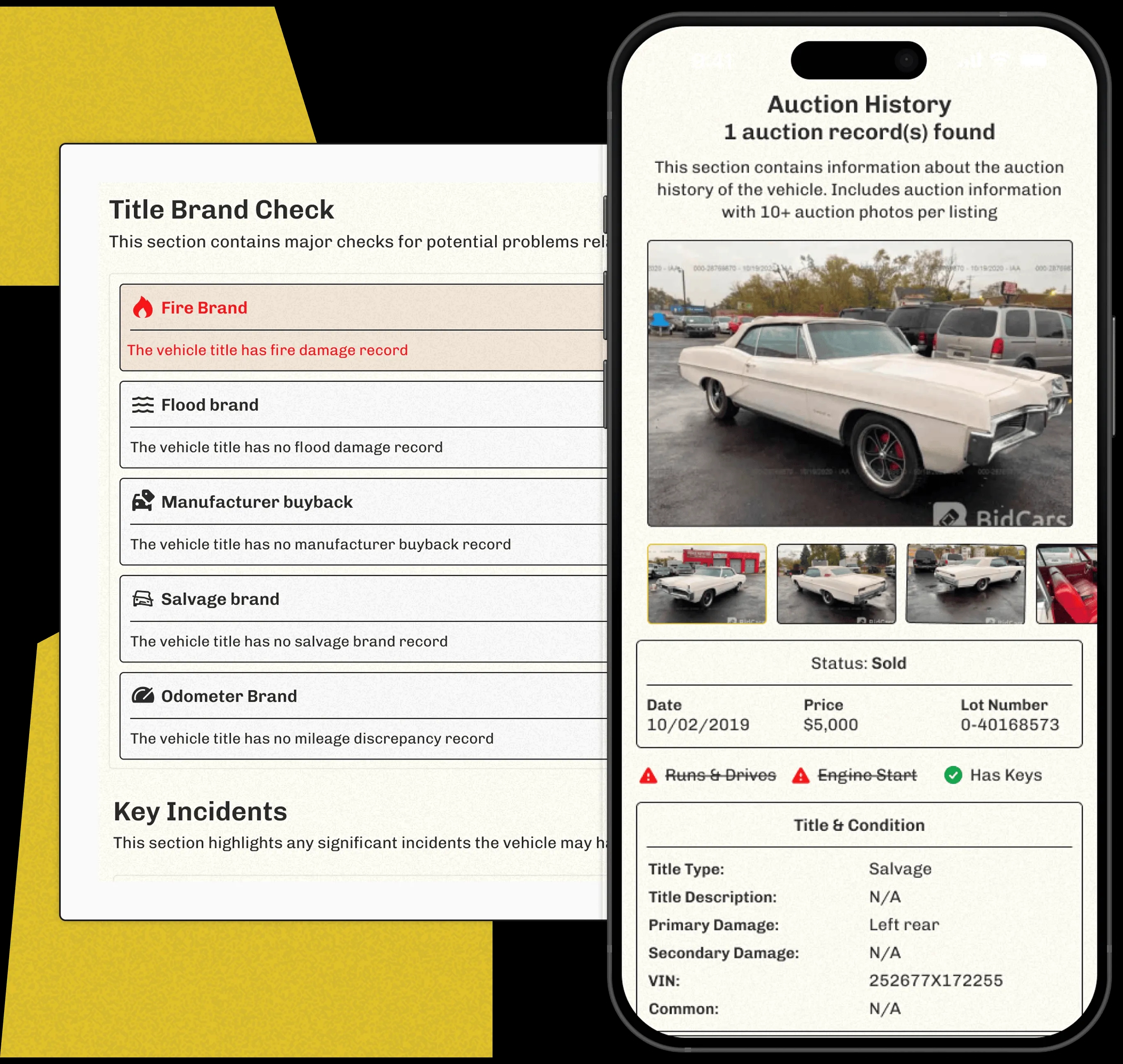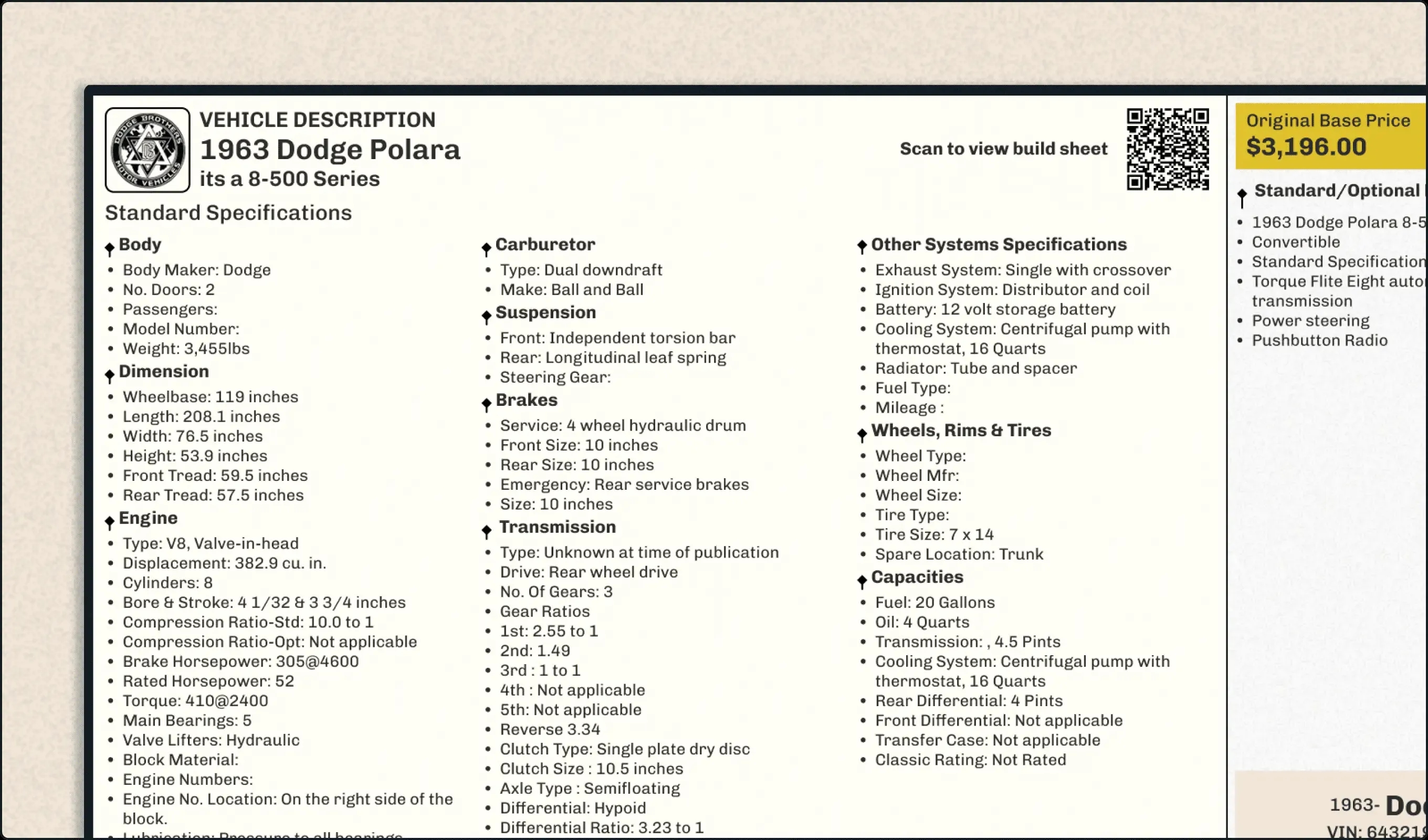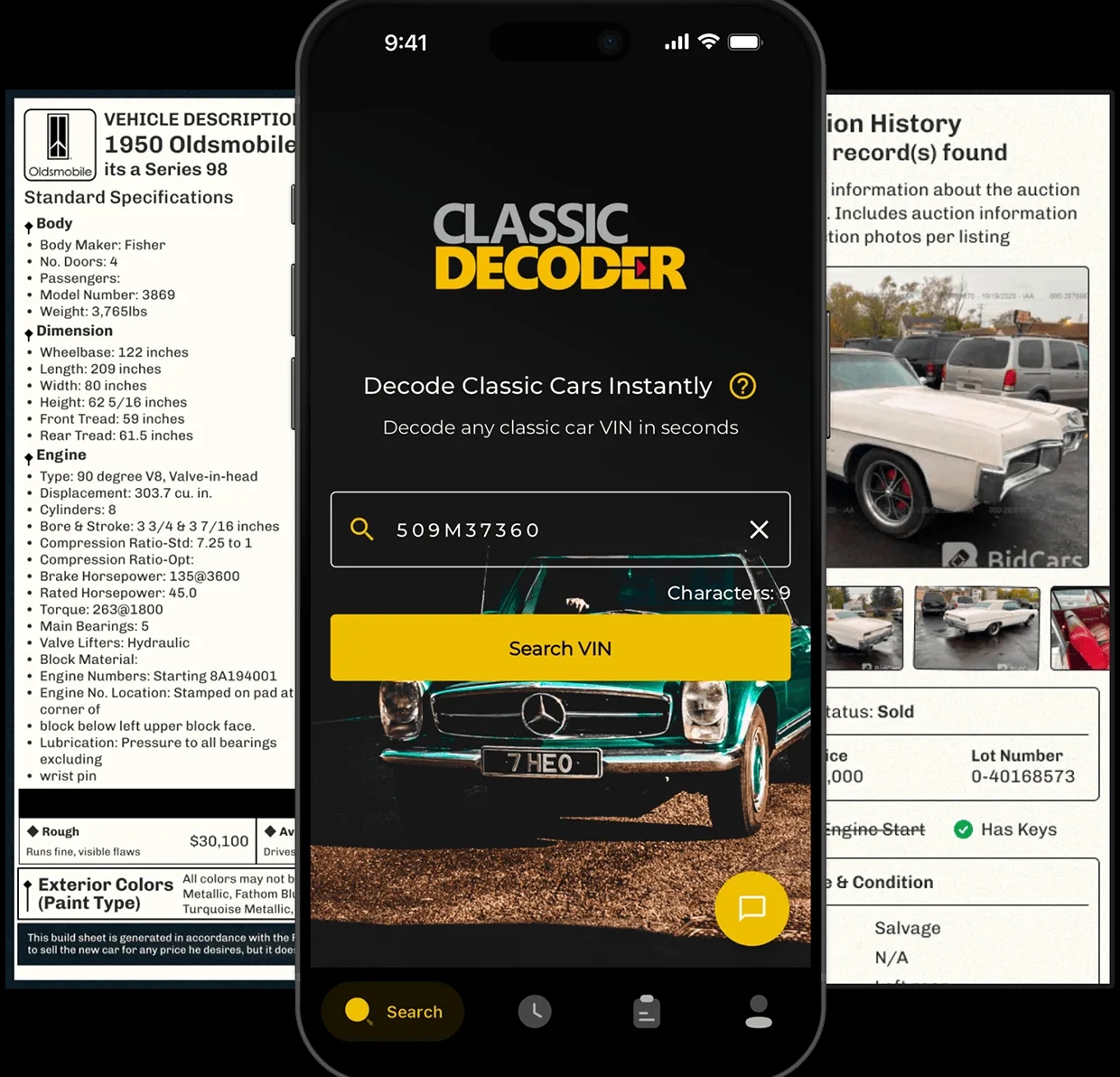1974 Chevrolet Chevelle
The '74 Chevelle: a bit softer than its muscle car predecessors, but still cool! A downsized classic reflecting the era's changing times, it held onto some of that iconic '70s style. Think sleek lines, a bit more comfort, and a lasting spot in American car culture. Not quite as aggressive, but still undeniably a Chevelle.
Decode Classic VINs to Get Vehicle History Report and Build Sheet
All About the 1974 Chevrolet Chevelle Malibu Classic
The 1974 Chevrolet Chevelle Malibu Classic 6 Series 1AD 1AG stands as a testament to a transformative era in the American auto industry. With its mix of muscle-car vibes and a nod to the increasing demands for fuel efficiency, this model became truly iconic. Introduced at a time when new safety regulations and an oil crisis prompted shifts in consumer desires, this car exemplified versatility and resilience.

1974 Chevrolet Chevelle Models:
Select the vehicle's model to see the correct data for it.
How Much is Chevrolet Chevelle Worth?
Original MSRP :$3,131.00
Outstanding
Clean
Average
Rough
1974 Chevrolet Chevelle Specs
Interested in buying a classic car or selling one?
Access detailed history reports for classic vehicles from hundreds of manufacturers.
- Accident Records
- Theft Records
- Loan & Lien Information
- Auction Information
- Salvage Information and more

History of the 1974 Chevrolet Chevelle Malibu Classic
Introduced to a world balancing economic turmoil and cultural shifts, the Chevrolet Chevelle line began in 1964 and quickly gained popularity for its sleek design and performance. By 1974, amidst new rules and shifting user expectations, it had evolved significantly. This model encapsulated a period of adaptation, maintaining a stance against the tide of compact, fuel-efficient cars while adhering to rising safety and emission standards.
Learn more about a classic car: Get Build Sheet by VIN.
Access reproduced classic build sheets to learn more about your classic vehicle details.
- Standard Specifications
- Original Base Price
- Standard & Optional Equipment
- Exterior & Interior Colors
- VIN ID & Location description

Design and Performance
A standout in terms of aesthetics and comfort, it featured various engine options—a nod to its muscle car lineage while also offering improved interiors to match evolving consumer tastes. This made it a sought-after choice for both car collectors and everyday drivers. Performance-wise, it didn't disappoint with some variants hitting 0-60 mph in under eight seconds .
Cultural Impact
From films like "American Graffiti" to being linked to characters like Tony Soprano in "The Sopranos," this car flourished in pop culture. It's also been a favorite canvas for personalization among enthusiasts, its appearance in media helped solidify its status as a muscle car legend . Imagine pulling up with that kind of presence!
Famous Figures Who Owned a 1974 Chevrolet Chevelle
Among the notable names linked to this classic, James Gandolfini stands out. He drove a Chevrolet Suburban in "The Sopranos," giving his character that rugged edge. Plus, "Talladega Nights" showcased the Chevelle, further cementing its role in American entertainment . It's like a hallmark of cool.
Fun Facts about the 1974 Chevrolet Chevelle
Its pricing has seen quite the flux in the collectors market. A one-owner model fetched a sweet $28,600 at a Mecum Auction in Florida.
Known for its robust styling, it's remained a favorite among classic car collectors.
Interested in Buying or Selling a Classic Car?
Navigating the world of classic automobiles can be daunting—how do you ensure your potential buy wasn't involved in a crash or stolen? Checking the vehicle history report and build sheet is crucial. Tools like are invaluable for such insights:
Accident Records
Theft Records
Loan & Lien Information
Auction Information
Salvage Information and more
For especially older models, a can be particularly useful if you're stepping into vintage territory.
Conclusion
With its blend of performance, adaptability, and cultural footprint, the 1974 Chevrolet Chevelle Malibu Classic is more than just a car; it's a piece of history. Whether you're looking to buy, sell, or simply appreciate the nuances of classic cars, tools like and the can play a crucial role in understanding these timeless machines.
Classic VIN Decoder App |Now available on both Android and iOS!
At Classic Decoder, we believe that developing a mobile app is a great way to extend our classic car data solution hub to as many users as possible across the globe. Our app is built with users and precision in mind. It holds the key to unlocking the history and details of any retro car at your fingertips. It also comes with fascinating and user-friendly features that make it stand out from other mobile apps designed for this purpose.
The Classic Decoder app lets you decode and lookup any classic VIN in a flash. Access accurate vehicle information and history, make an informed decision faster, and buy and trade in classic cars with confidence.

Download The Classic Decoder App now.
Some unique features include:
- Support all classic VIN lengths from 5 to 13 digits
- Support classic cars produced from 1910 – 1980
- Online Garage features – to add and manage your vehicles
- 24/7 Customer Support
- Easy onboarding for first-time users
Explore Chevrolet Chevelle from Other Years
Frequently Asked Questions
Okay, so the '74 Chevelle lineup? It's kinda like choosing from a really awesome ice cream sundae bar. You've got your basic Chevelle Malibu, the everyday driver, reliable and dependable; then you climb up to the fancier SS (Super Sport) models, sporty and, well, let's just say they were a bit more 'oomph'. They boasted more powerful engines and sportier suspensions. But there were also different body styles—coupes, sedans, wagons—each offering a different vibe. It's all about figuring out what flavor of '74 Chevelle you crave. Some folks really like the hardtop coupes, others prefer the practicality of a station wagon, you know? Choosing the right model is totally dependent on your personal preferences, really. Think about what you want in a classic muscle car – do you prefer the raw power or a more comfy ride?
The engine choices for a '74 Chevelle were pretty diverse, ranging from relatively tame six-cylinder options to pretty powerful V8s. Now, the smaller engines—think of them as the sensible shoes of the engine lineup—were good for everyday driving; however, the big-block V8s were where things got interesting. Those engines were seriously powerful, and they could really make the car move. Of course, you also have to consider gas mileage. The bigger the engine, generally the more fuel you're going to burn, and in '74, fuel economy was becoming a bigger deal. So, the engine choice is kind of like choosing between the reliable comfort of a well-worn couch versus the thrill of a high-octane sports car. It really comes down to individual needs and preferences.
The '74 Chevelle held its own against other muscle cars of the time, though the muscle car scene was changing. Think of it as a classic heavyweight boxer facing newer, lighter opponents – still a force to be reckoned with, but facing some fresh challenges. Competitors like the Ford Torino and Plymouth Road Runner offered similar body styles and powertrain options, but each car had its own unique personality; kind of like comparing different flavors of pie. The Chevelle held its own, though; some people swear by it to this day. Ultimately, the best car depends on what the buyer is looking for.
Like any classic car, the '74 Chevelle has its quirks. Some common issues include things like the usual suspects: rust, especially in areas prone to salt spray; electrical gremlins can pop up; and the braking system might need some attention after all these years. It's like any old house – regular maintenance keeps things running smoothly; however, certain parts might need replacing or restoring over time. But hey, that's part of the charm of owning a classic car, right? You get to know it intimately as you tackle those little maintenance issues.
Pricing for a '74 Chevelle varies wildly based on condition, options, and model. A rust-bucket beater will go for peanuts, while a pristine, low-mileage SS could fetch a pretty penny. It really depends on the specifics of the car and, let's be honest, the state of the market at the time you decide to sell it. It's like buying or selling a piece of art—its worth is really determined by supply, demand, and its overall condition. This isn't something easily quantified. You should check various classic car valuation sites and resources to get a better idea.

